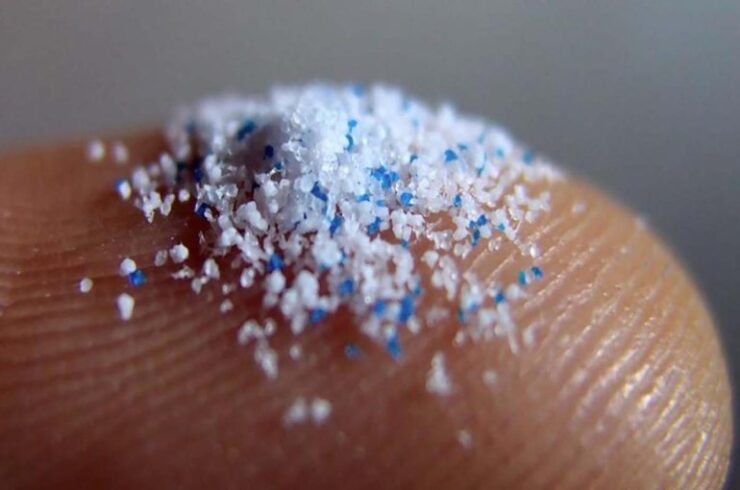News
New grant awarded for research on health effects of microplastics
What happens when microplastics enter the human body? While the amount of microplastics in our environment is increasing, we know very little about the health risks and how to better mitigate them. The Microplastics and Human Health (MOMENTUM) consortium is investigating a number of knowledge gaps, and with a new grant of €3,650,000 from ZonMw it will conduct further research and suggest pathways to prevent potential negative effects on human health.

In 2020, 15 so-called breakthrough projects were completed that were conducted with a grant from the ZonMw Microplastics & Health programme. These studies showed that micro- and nanoplastic particles in our environment can enter the human body and have disruptive effects on, among others, our immune system.
For example, research showed that small plastic particles are present in the placenta and amniotic fluid, and that microplastics taken up by placental cells had a subtle effect on genes involved in hormone production and metabolism. This research was awarded a Pearl by ZonMw.
The studies were followed up in 2021 by the MOMENTUM consortium, which aims to identify the potential risks of microplastics for human health. The knowledge generated may be used to develop preventive measures. The consortium unites universities, knowledge institutes and companies, and received a grant for a period of three years from ZonMw, the top sector Life Sciences & Health, TNO, ministries and companies.
Netherlands leading the way
Despite the results from the breakthrough projects and follow-up research in MOMENTUM, there is still a long way to go in this globally new research field. Therefore, the Ministries of Health, Welfare and Sport (Ministerie VWS) and Infrastructure and Water Management (Ministerie IenW) have asked ZonMw to further deepen and strengthen the Microplastics & Health grant programme. The main goal of this programme is to arrive at a preliminary risk analysis for human health and to develop pathways towards reducing those risks.
The award of a new grant to the MOMENTUM consortium, which will continue its research under the name ‘MOMENTUM 2.0′, further strengthens the Netherlands’ leading role in the field of microplastics and health research. “We are extremely pleased that we can now continue this important research”, says Juliette Legler. “This award will allow us to deepen and broaden our scientific knowledge so that we can better identify the potential human health risks of micro and nanoplastics.”
More funding for microplastics research
In addition to MOMENTUM 2.0, ZonMw will award seven more projects later this year. These projects will work closely together to find answers to some of the most urgent questions articulated in the knowledge agenda “What do microplastics do in our bodies?” (“Wat doen microplastics in ons lichaam?”, 2020). This should lead to new knowledge generated by 2025, and a new overview of the next key steps in the field of microplastics and health research.
Microplastics and living environment
Microplastics and Health is part of the ZonMw societal topic Healthy Living Environment. Intuitively, everyone understands what a healthy living environment is. People link this concept to, for example, healthy behaviour, a clean environment and sustainable homes. In recent years, ZonMw has facilitated several studies that promote a healthy living environment. In this context, research into the impact of microplastics on our health is a new and rapidly growing field of research, in which long-term research funding can make a difference.
More information
- See this news item about the Pearl award for Juliette Legler
- Read this interview in Vetscience




